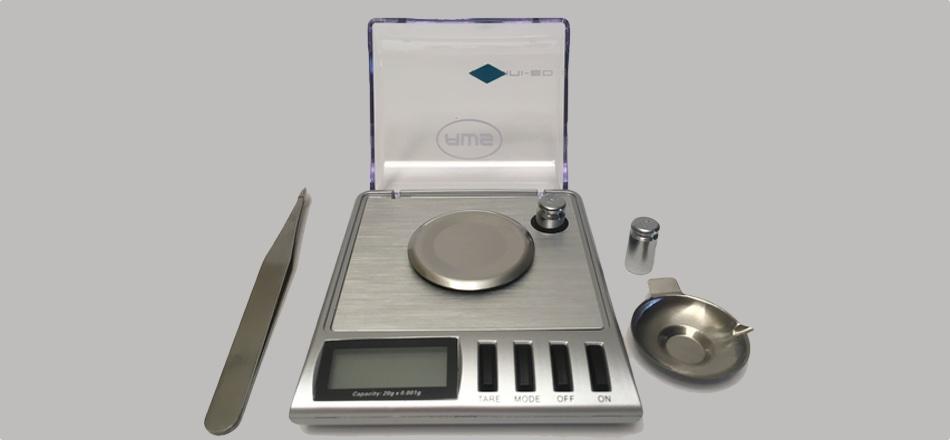Digital Scale

There are many types of digital scales (variously called jeweler’s scales, gem scales, and gram scales) available online and at retail stores for a wide range of prices. In general, the more accurate a digital scale is, the more it costs, with the most accurate scales running into the hundreds or thousands of dollars.
Layperson tips for choosing a digital scale:
- For most safer tapering purposes, the scale needs to be precise enough to measure in increments at least as small as 1 milligram, which is the equivalent of 0.001 grams.
- Even with a scale that is rated to measure to 0.001 grams, in practical terms for reasonably slow tapering, this means that the scale can be relied upon to make accurate measurements of changes in weight of 10mg or 0.010 grams. With weights or changes of weight that are smaller than that, the normal rounding and error rates can become more risky for medication tapering purposes. (For further information, see "Understanding the Limits of a Digital Scale's Accuracy".) Despite these typical ranges of error, some laypeople do report tapering successfully through using this method; others, however, report coming up against difficulties. Using a pharmaceutical-grade filler to increase the base weight of the drug may be a viable solution.
- Some scales come with a small bowl or tray for holding the item to be weighed, or with handling implements such as tweezers.
- Some scales also come with a calibration weight, which is an excellent feature for ensuring the scale remains reasonably accurate over time.
- Online reviews and comments of digital scales can be helpful, as well as asking others in TWP Connect and pharmacists for recommendations of good scales.
- The scale should have a simple method for re-setting it to zero while there is weight on it, such as a “Tare” button.
In this section
- Step 10- Get Informed About Your Psychiatric Drug
- Step 11- Ensuring that a Drug is Relatively ‘Taper-friendly’
- Step 12- Interactions, Reactions and Sensitivities
- Step 13- Taper Rates
- Step 14- Taper Schedules
- Step 15- Taper Methods
- Step 16- Preparatory Decisions
-
Step 17- Gather the Gear
- Adapter Caps
- Bead-counting Surface
- Counting Implement
- Digital Scale
- Empty Capsules
- Graduated Cylinders and Pipettes
- Jars
- Labels and Pen/marker
- Measuring Bowl or Tray
- Mortar and Pestle
- Pharmaceutical-grade Powder Filler
- Pill Bottles
- Pill Organizer
- Refrigerator and/or Cooler Bag
- Slip Tip Syringes
- Transferring Implements
- Step 18- Essential Skills
- Step 19- Setting Up a Taper Journal
- Step 20- Implementing a Taper
TWP’s Companion Guide to Psychiatric Drug Withdrawal Part 2: Taper